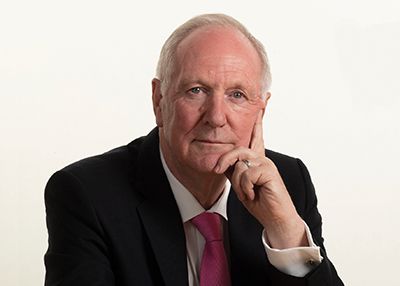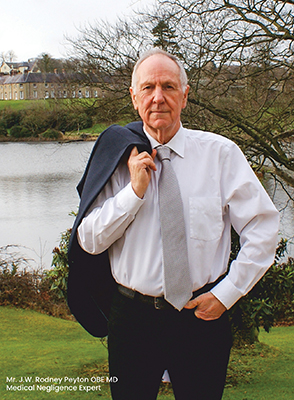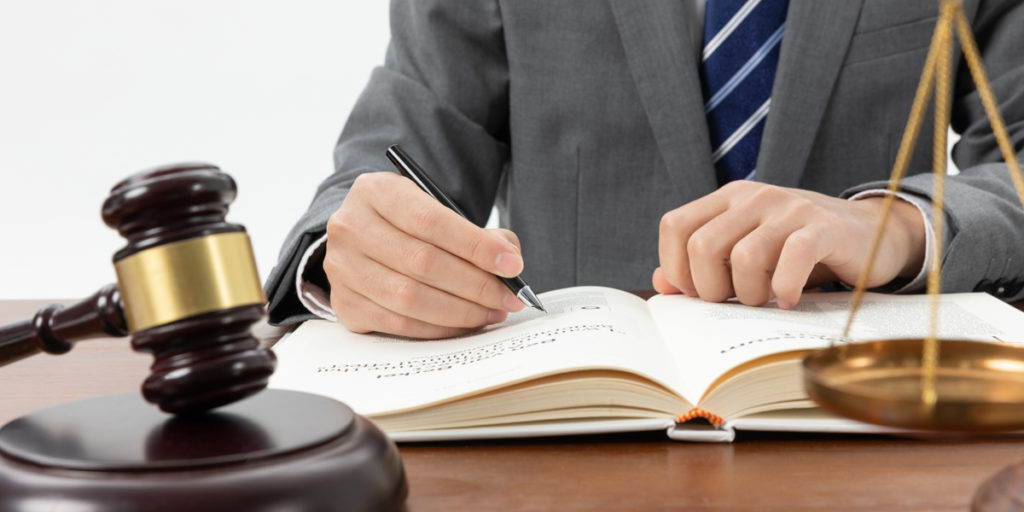Medicine is regarded as one of the most dignified professions around the world. The relationship between the doctor and the patient stands on pillars such as trust, confidence, and hope. However, like several other industries, commercialization has largely impacted the medical profession and services as well. Today, there is increasing anxiety both within the medical profession and in society regarding the constantly increasing trends of complaints and lawsuits against physicians.
 It is imperative for doctors to be aware of the legal aspects linked to their profession and take precautionary measures to protect themselves and their patients from legal traps. The knowledge of medico-legal issues has become as fundamental to the practice of medicine as clinical skills.
It is imperative for doctors to be aware of the legal aspects linked to their profession and take precautionary measures to protect themselves and their patients from legal traps. The knowledge of medico-legal issues has become as fundamental to the practice of medicine as clinical skills.
Thus, experts in the field of medico-legal services are in demand presently. While several new leaders have been emerging in recent years, veterans like Mr. J.W. Rodney Peyton OBE MD are still regarded as one of the prominent leaders in the medico-legal sector.
A Distinguished Career spanning Over Three Decades
A Consultant Trauma Surgeon by profession, Mr. Peyton has been driven by a desire to improve surgical practice and ensure better outcomes for patients—throughout his eminent career spanning four decades. He has served as the Head of Faculty Development and Examiner Training for the Royal College of Surgeons of London and has been at the forefront of innovation in the delivery of teaching and healthcare.
Widely regarded as the World’s #1 surgical coach, Mr. Peyton has received numerous recognitions. He has received the Werner Korte Gold Medal for services to German Surgical Education in 2002. Moreover, he was bestowed with the Medal of the Swedish Surgical Society for his services to medical education in 2005.
He is also a law graduate and has been involved in medico- legal reporting and court appearances as an expert witness since 1983. He is also a founding member of the Expert Witness Institute and has played an important role in providing an independent expert opinion in cases of potential medical negligence. He has been reported over 70,000 personal injury cases as well as being asked to advise in more than 3,000 cases of potential medical malpractice.
Mr. Peyton’s prowess in the medico-legal domain, blended with his avid experience in both military and civilian trauma has been instrumental in him being regarded as an authority on medico-legal issues. He has been actively involved in training doctors and lawyers in dealing with medico-legal cases—both individually and in professional groups, also as a trainer and keynote speaker. In a conversation with Mirror Review, Mr. Peyton shed light upon what it is like to be a medico-legal expert in today’s world and shared some invaluable insights that would help those aspiring to step into the industry.
 A Satisfying Intellectual Exercise
A Satisfying Intellectual Exercise
Preparing medico-legal reports—according to Mr. Peyton—is a very satisfying intellectual exercise, particularly regarding malpractice, and is one of the best ways of keeping up to date in his field of expertise. “Each case is unique with many twists and turns. Having to think out the pros and cons in any given range of opinions allows the expert to become even more secure in their own practice which can only be for the benefit of patients,” affirms Mr. Peyton.
According to him, the best way to learn anything is to teach it. In this case, barristers/ trial lawyers will ask detailed, probing questions to gain a full understanding—requiring the teacher/expert to more clearly understand their own practice and personal biases as they consider legitimate differences of opinion.
Stay Relevant, Neutral, and Clear
As Head of Peyton Medico-legal Services, Mr. Peyton’s philosophy is that the objective is to assist those in litigation including the clients, their legal advisers, and the court to clearly understand the nature of medical evidence in individual cases so they can make informed decisions. It is the court’s jurisdiction to determine facts under dispute in a case, and the expert opinion guides the court in its deliberations.
While the judges are highly trained and experienced in the interpretation of the law, they—alongside the barristers and trial lawyers—are not the experts when it comes to healthcare professions. They need help in understanding the medical evidence before them. Thus, the expert must assist the court in decision-making. According to Mr. Peyton, any expert must stay relevant in their profession, remain neutral throughout no matter who is responsible for their fees, and must clearly understand their paramount duty is to the court.
Mr. Peyton further mentions it is important to remember innovation in the legal profession is slow and steady. When in the witness box, an expert must not display innovative behaviors in terms of thoughts about managing cases. As the courts are looking for a fair degree of certainty, all the arguments have to be clear, logical, and well-thought-out. “In this case, experts must acknowledge there always exists a range of opinion and clearly annunciate with an evidential base as to why their opinion should be preferred,” he advises.
Furthermore, an expert having personal prejudices or inclinations can sometimes cause confusion and trust issues. Mr. Peyton, however, believes having a personal bias towards a particular method of treatment is not an issue if the preference is transparent and the expert can demonstrate they are prepared to consider and discuss the viability of other options. According to him, experts require the flexibility of mind to review their opinion if compelling evidence to the contrary becomes available.
Determining the Probability of Success
In recent years, medical negligence/malpractice has become one of the major growth areas in medico-legal practice. However, figures from defense organizations suggest that only a few actions actually succeed with a vast majority failing based on causation. As subsequence is not the same as consequence, Mr. Peyton believes that it is important to determine at an early stage the probability of a case to succeed.
To help offset the escalating costs of litigation, Peyton Medico-legal has introduced a provision of preliminary screening reports to ensure that the elements of duty, breach, and consequential damage are likely to be in place before commissioning other more costly specialist reports. This keeps down the costs for clients and their legal advisors as well as enables lawyers to manage clients’ expectations at an early stage at a minimal cost.
“Lack of Professionalism will not be tolerated…”
Mr. Peyton believes that being an expert witness has become more professionalized now than it was when he started. He mentions that courts have tightened up concerning their expectation of witnesses and, of particular importance, has been the loss of immunity from liability for those giving evidence. “Overall, I think this has been for the better. There still tends to be a lot of exaggeration, if not outright fraud, inflicted within the claims industry,” he asserts.
The business environment in personal injury cases—with an added emphasis on financial compensation—can induce a tendency to discard facts for portraying the claimant’s case in the best way possible. Unfortunately, this has been enabled by some medical practitioners who fail to understand their duty is towards the court and not to those instructing them. This can lead to the defamation of professional medico-legal experts and can have a severe impact on their personal, professional, and financial well-being. Mr. Peyton adds, “The message is clear. Such a lack of professionalism will no longer be tolerated.”
Why do Medical Mistakes Occur?
Alongside a lack of professionalism, there are several other mistakes medico-legal experts make. Expressing his views on those mistakes, Mr. Peyton says, “It is in the way in which decisions are made.” According to him, there are three primary types of logical reasoning—deductive, inductive, and abductive. Deductive argues from the general to the specific and if the generality is correct, then the specific is correct. “For instance, if I have a jar of white marbles and I take the marbles from the jar, then those marbles are liable to be white. In court terms, this is the doctrine of res ipsa loquitur,” he adds.
Inductive logic, on the other hand, starts from the specific and works back to the general. Mr. Peyton illustrates, “If I have five white marbles in my hand and they came from a specific jar, then all marbles in the jar are liable to be white.” This, however, may not be true and is the basis of the null hypothesis in statistical research. Thus, papers that states results, “Nearly reached significance” have to be handled diligently. They either reached significance or they didn’t and the problem in the law is arguing with a specific bias and producing only evidence that equates to one side of the argument.
At last comes the abductive reasoning. “For instance, if I have white marbles in my hand and there are white marbles in the jar, then the marbles in my hand came from the jar,” states Mr. Peyton. This is a big step and is one of the major causes of medical mistakes where a set of symptoms are assumed to indicate a particular disease process. “This is a cognitive bias where alternatives are not even considered in spite of evidence to the contrary,” he adds.
For more information or any queries on Medico-Legal issues, please visit: www.rpeyton.com to schedule a complimentary consultation

